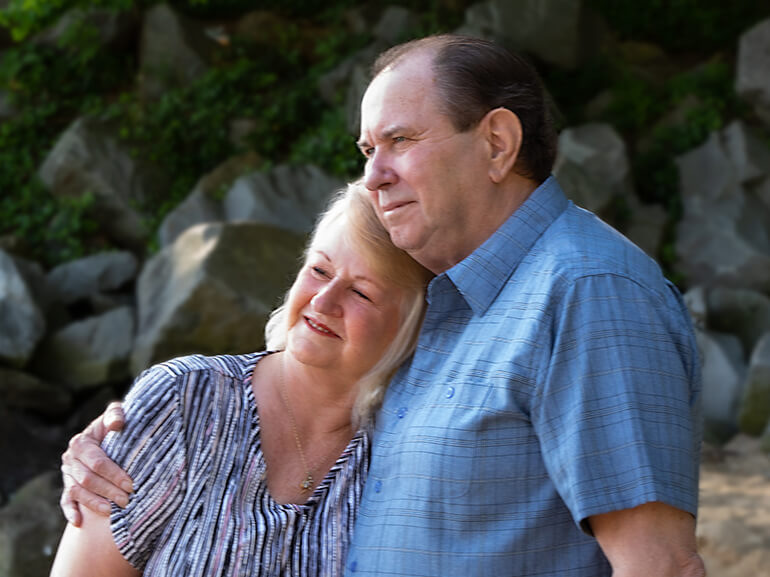Bill's story

Bill Cripe and his wife, Mary, did all they could to keep the coronavirus at bay. Still, in late June, the couple, who have been married 50 years, soon tested positive.
At first, they weathered symptoms and isolated at home.
In early July, Bill felt significantly worse. He went to the hospital, and quickly fell into respiratory failure.
The father and grandfather spent two months fighting for his life. By September, Bill was stable enough to take the first step in recovery, transferring to Select Specialty Hospital – Hampton Roads.
When admitted, Bill was unable to breathe, eat, speak, move or think clearly.
A physician-led team, including nurses and therapists, created a treatment plan to help Bill return to his family.
His most significant challenge was overcoming significant delirium and confusion. Bill hallucinated as unnatural images drifted past his field of vision.
Pharmacists, respiratory and physical therapists used a combination of medicinal and therapeutic intervention to clear Bill’s mind. They moved limbs to stimulate blood flow and assisted in transferring him to a chair for cognitive reorientation and core muscle building.
Once the fog lifted, it was easier for Bill to participate in physical, occupational and speech therapy. He worked to sit in bed independently, move to its edge and attempt standing.
Respiratory therapists, using a variety of deep-breathing, chest and coughing exercises, retrained Bill’s lungs to work on their own. They reduced ventilator settings until he no longer needed its support. A valve was inserted in his tracheostomy allowing more normal speech.
Speech therapists led mouth, tongue and jaw exercises which restored swallowing capabilities. Not long after, airway support was discontinued and Bill stepped down to a tube of nasal oxygen.
By early October, he’d met the first set of goals, but needed to build strength and stamina. He departed for Riverside Rehabilitation Hospital, the next post-acute level within Select Medical’s continuum of care.
There, Bill underwent three hours of physical and occupational therapy each day. Building on the skills learned at Hampton Roads, physical therapists used a variety of exercises to rebuild leg and lower body agility. Fitted for a walker, he was able go short distances. Bill also transitioned to a regular diet.
Occupational therapists used tasks that emphasized gripping skills to restore dexterity. In time, Bill was able to groom, dress and feed himself with little assistance.
Three weeks later, Bill was ready to go home. He departed for the apartment he shares with Mary, eager to reunite with family and friends. He continued with outpatient therapy and was able to discontinue the walker.